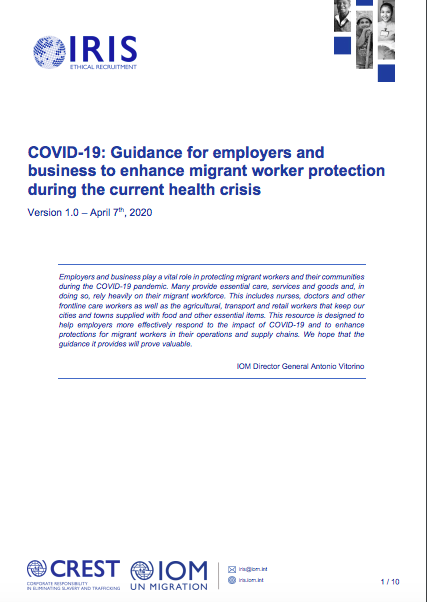Employers and business play a vital role in protecting migrant workers and their communities during the COVID-19 pandemic. Many provide essential care, services and goods and, in doing so, rely heavily on their migrant workforce. This includes nurses, doctors and other frontline care workers as well as the agricultural, transport and retail workers that keep our cities and towns supplied with food and other essential items. This resource is designed to help employers more effectively respond to the impact of COVID-19 and to enhance protections for migrant workers in their operations and supply chains. We hope that the guidance it provides will prove valuable.
This document is designed to offer preliminary guidance to employers to enhance their response to the current health crisis brought on by COVID-19 and, in particular, to offer advice to establish effective protections for migrant workers in employer operations and supply chains. It is a “living document” and will be updated regularly for the duration of the pandemic.

